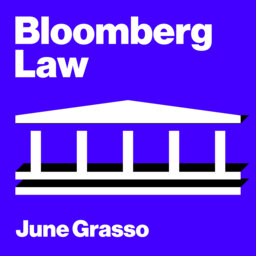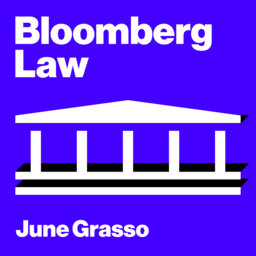Weekend Law: SCOTUS 2025 & Blake Lively Legal Drama
Constitutional law expert Harold Krent, a professor at the Chicago-Kent College of Law, discusses the cases coming up for argument at the Supreme Court this year. Labor and employment lawyer Nisha Verma, a partner at Dorsey & Whitney, discusses the dueling lawsuits in actor Blake Lively’s sexual harassment claims. Bloomberg legal reporter Erik Larson discusses a New York judge refusing to dismiss the hush money conviction against President-elect Donald Trump. June Grasso hosts.
In 1 playlist(s)
Bloomberg Law
Expert analysis on legal issues and cases in the news. Host June Grasso speaks with prominent atto…Social links
Follow podcast
Recent clips

Introducing: Bloomberg This Weekend
01:08

Weekend Law: Big Oil Seeks Climate Lawsuit Reprieve; States Sue RFK Jr
38:54

Tariffs Struck Down, Erasing History & Climate Rule Revoked
36:40
 Bloomberg Law
Bloomberg Law